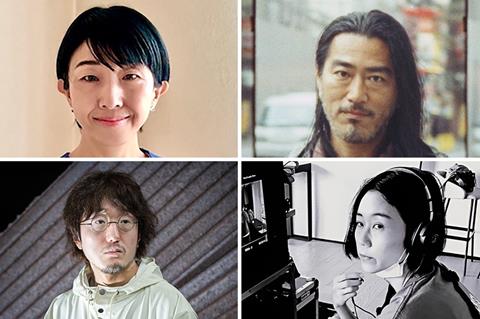
Four of Japan’s most promising directors have travelled to Cannes to expand their view of the international film industry and enhance their visibility on the global cinema stage.
They have been selected as part of Film Frontier, an initiative launched in November by Japan Arts Council with subsidiary aid from the Agency for Cultural Affairs, Government of Japan, which looks to increase the presence of creators from the country on the international film landscape.
Kohki Hasei, Shingo Ota and Mai Nakanishi have been chosen for the Film Frontier Global Networking Program, which helps promising directors refine their pitches and gain international networking opportunities. The trio will meet with potential funders and co-producers at the Cannes market.
The fourth is Chie Hayakawa, whose Renoir is in Competition at the festival. She has been selected for the Film Frontier Global Residency Program, in which filmmakers are provided with extended stays in major cities around the world and paired with industry mentors to help develop their projects and scripts.
The goal is to establish a sustainable production cycle by helping develop the skills of Japan’s young creators and increase the appeal of Japanese cinema abroad.
Kohki Hasei, Kutheran
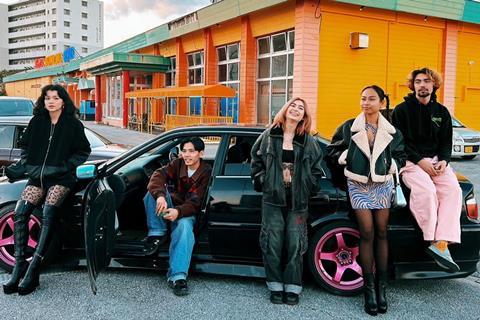
Hasei is known as the director of 2015 feature Blanka, in which a child living on the streets dreams of “buying” a mother. The film premiered at Venice, where it won a Magic Lantern award and Sorriso Diverso prize. His debut short, 2008’s Godog, also depicted those on the edge of society — people living among garbage dumps and cemeteries in the Philippines.
“The world changes at a dizzying pace, but there are those in the midst of it all who become victim to those changes,” says Hasei. “I want to make films about them with empathy.”
The project Hasei is pitching through the Film Frontier programme is titled Kutheran. It takes place in Okinawa, the southern island chain that is host to many US military bases, and centres on a mixed-race Okinawan who lost her US father to war, and an undocumented immigrant being exploited by her employer.
“In Okinawa, there are many mixed-race children born of American fathers who have been abandoned for a variety of reasons,” says Hasei. “I want to shine a light on their unique charms, history, culture and societal issues that aren’t very well known.”
Hasei has previously pitched the project at Busan’s Asian Project Market, and has attached partners including Italy’s Dorje Film and Japan’s Transformer. Through Film Frontier, the writer and director hopes to learn more about the production side of filmmaking and meet both investors and producers from the US, which has had a large influence on Okinawa.
Chie Hayakawa, Renoir
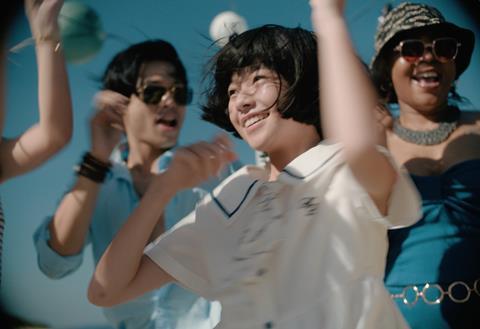
Hayakawa made her international breakthrough with directorial debut Plan 75, which premiered in Un Certain Regard in 2022 and was Japan’s submission for the Oscars. The director returns to Cannes this year with Renoir, graduating to the Competition section with the story of a girl navigating adolescence in 1980s Japan.
She is one of four directors selected for the Film Frontier Global Residency Program, in which rising filmmakers are sent to cities around the world to learn from industry mentors.
Hayakawa is headed to Paris for her residency, where she plans to build scenes for her new project through improvisation with actors. She also hopes “to get inspiration for my story by meeting as many new people as possible”. As a student of film, Hayakawa is also looking forward to spending as much time as possible in Paris’s many legendary cinemas.
Having studied and worked in New York, Hayakawa already has a significant amount of international experience, which she says has helped her realise that “making films, as much as watching them, transcends cultural background differences and crosses borders with ease”. She also credits the many international producers of Renoir, such as Loaded Films, Arte France Cinéma and Nathan Studios, with “providing feedback from a variety of angles, adding to the quality of the film.”
Asked if she has ambitions to direct a film outside Japan, Hayakawa’s committed one-word reply is: “Absolutely.”
Mai Nakanishi, Child, Uninvited
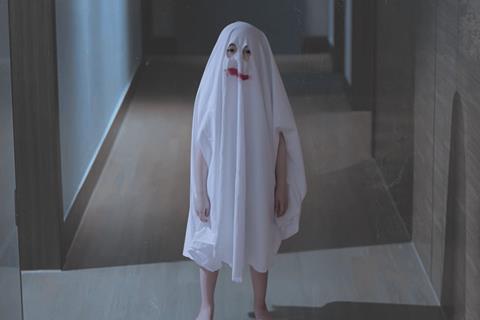
Nakanishi is known for her short films in the horror and thriller genres filmed around Asia, spanning South Korea, Taiwan and Japan.
“Having spent a significant amount of time abroad, my multicultural background has profoundly shaped who I am as a person,” says Nakanishi, an alum of the BIFF Asian Film Academy, Berlinale Talents Tokyo and the Sundance/NHK Screenwriters Lab. “This experience has encouraged me to think and act outside the box, leading me to work in a ‘borderless’ way.”
Nakanishi’s credits include 2021’s Swallow and 2018’s Hana, which won the director’s award at Portland Horror Film Festival. Her latest short Confession was shot by renowned cinematographer Akiko Ashizawa, known for her longtime collaboration with Kiyoshi Kurosawa on films such as Un Certain Regard 2008 winner Tokyo Sonata.
“At first, I felt a bit overwhelmed, as she is one of the pioneering female cinematographers in Japan,” says Nakanishi. “In the end, we found a comfortable way to work together, which wasn’t easy but became an invaluable and incredibly interesting experience.”
The director’s Film Frontier project Child, Uninvited is “a psychological thriller that explores the lasting effects of emotional neglect in childhood”. Like many of Nakanishi’s projects, it has a cross-cultural element, featuring an expectant mother from South Korea moving to Japan. The film will be pitched at the Fantastic Pavilion Round Robin at the Cannes market.
Through the global networking programme, Nakanishi is looking forward to learning practical skills such as the legal aspects of filmmaking. “As an independent filmmaker, I often find myself facing legal questions I’m not fully equipped to handle,” she says. “It would not only help me protect my work and collaborations, but also give me a greater sense of security as I move forward.”
Shingo Ota, The Chimney Sweeper
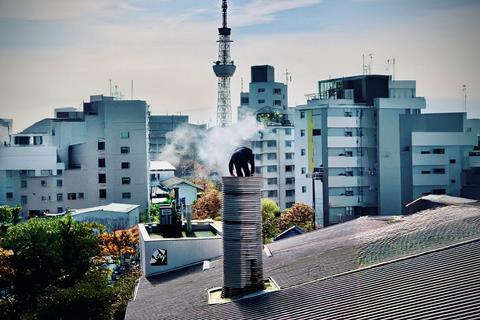
Documentary filmmaker Ota made his feature debut with 2013’s The End Of The Special Time We Were Allowed, about the death by suicide of a close friend. His latest feature Numakage Public Pool is about the demolition of a long-cherished swimming facility and the stages of grief felt by the locals who use it. The film won the First Cut+ works-in-progress award at Karlovy Vary last year.
“As a student, I majored in philosophy, particularly narrative theory,” says Ota. “I decided to choose video expression as a tool to pursue the possibility of multilayered narratives.”
The filmmaker’s current project The Chimney Sweeper is about an 85-year-old man who works at public bathhouses and decides his final job before retirement will be to repair a chimney damaged in Japan’s 2024 Noto Peninsula earthquake.
Through Film Frontier, Ota is working with mentor Jean-Marie Gigon of France’s Sanosi Productions, travelling to Cannes to “learn how we can develop a documentary about a local area in Japan into a project with international appeal”.
He will then take the polished project to pitch at DocEdge in New Zealand and Sheffield DocFest in June.
Contact: Kaori Ikeda, Unijapan
Find out more: unijapan.org





























No comments yet